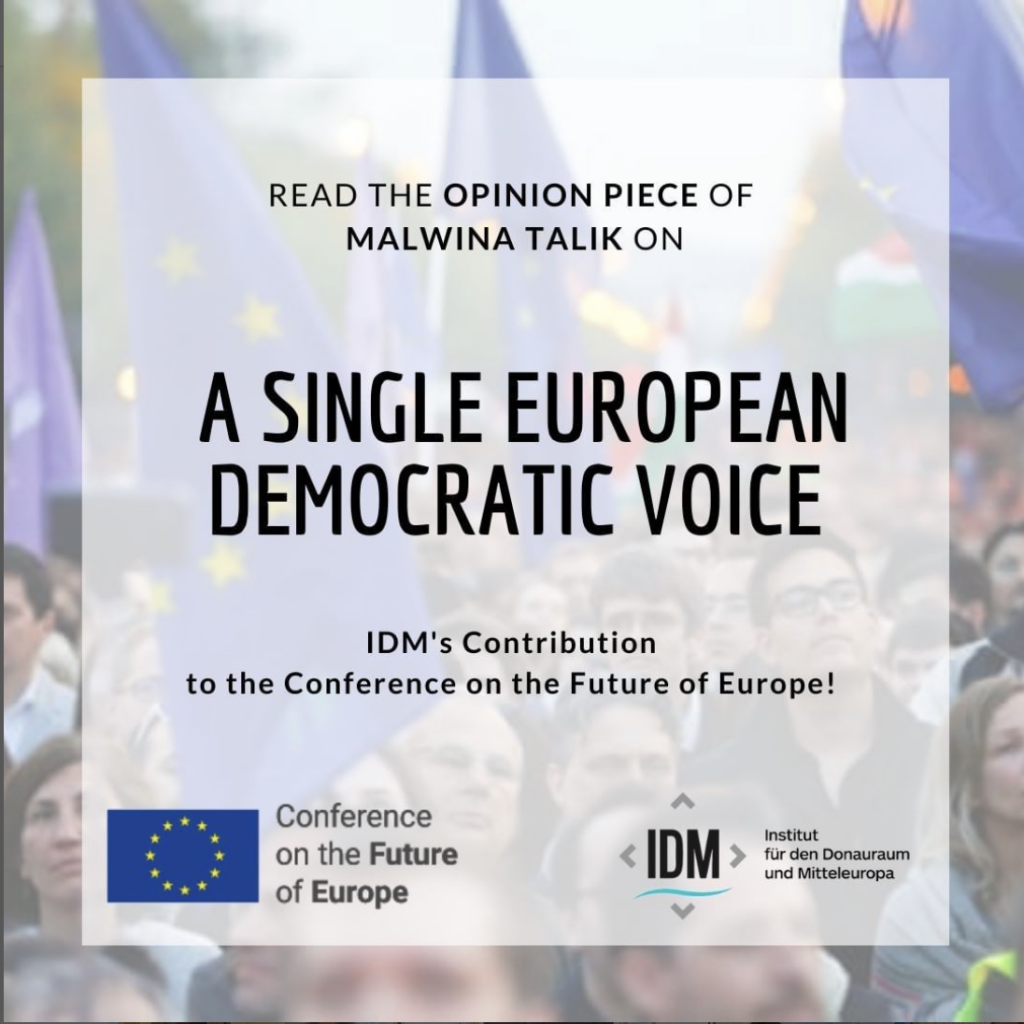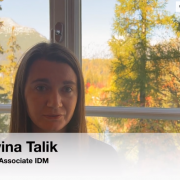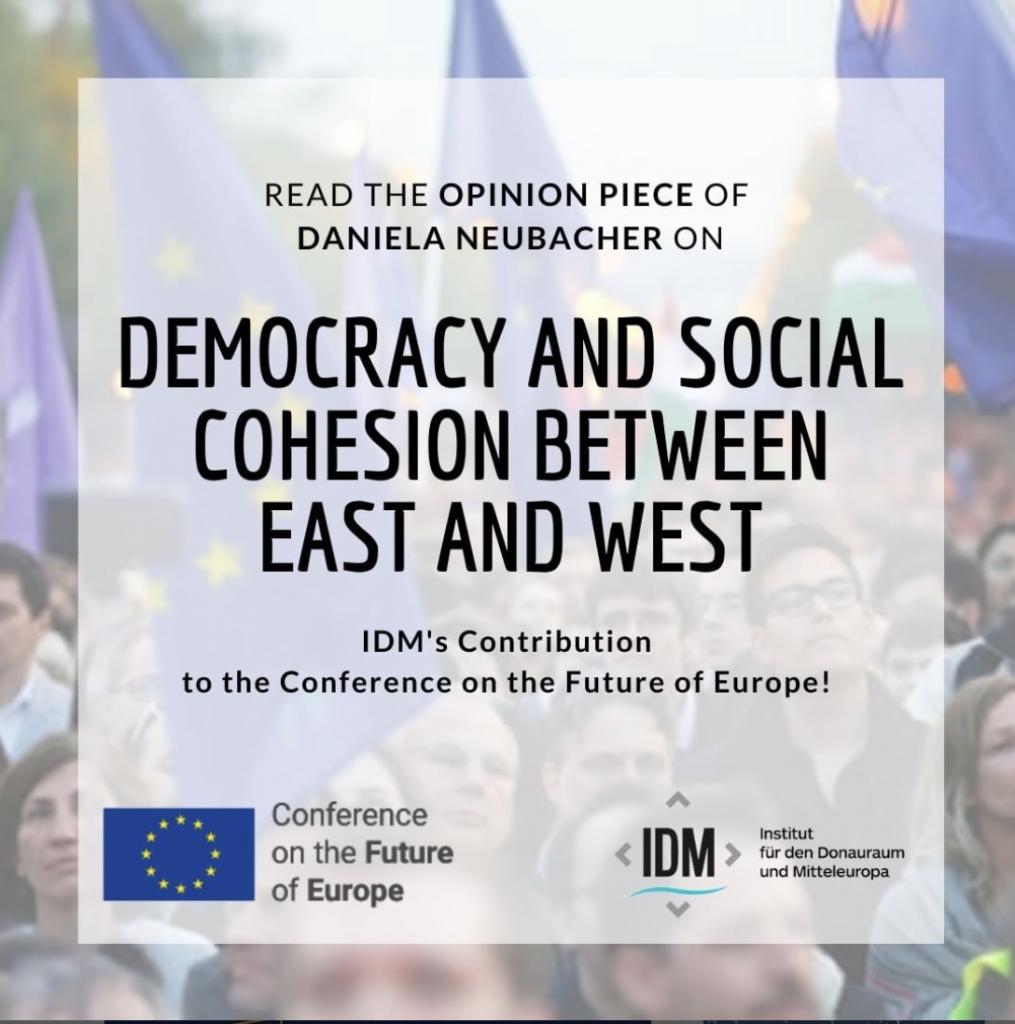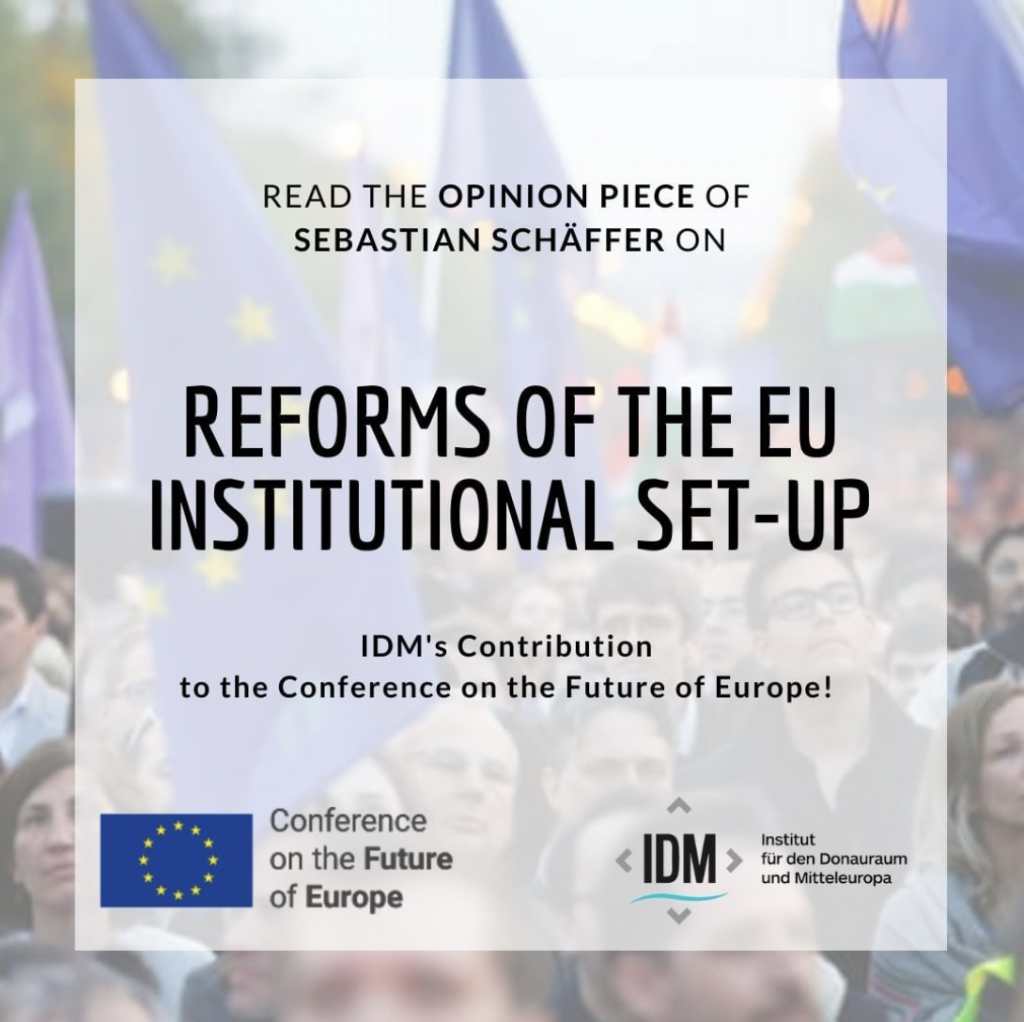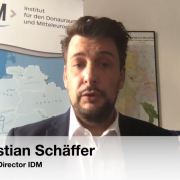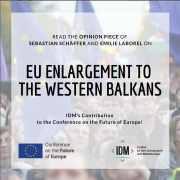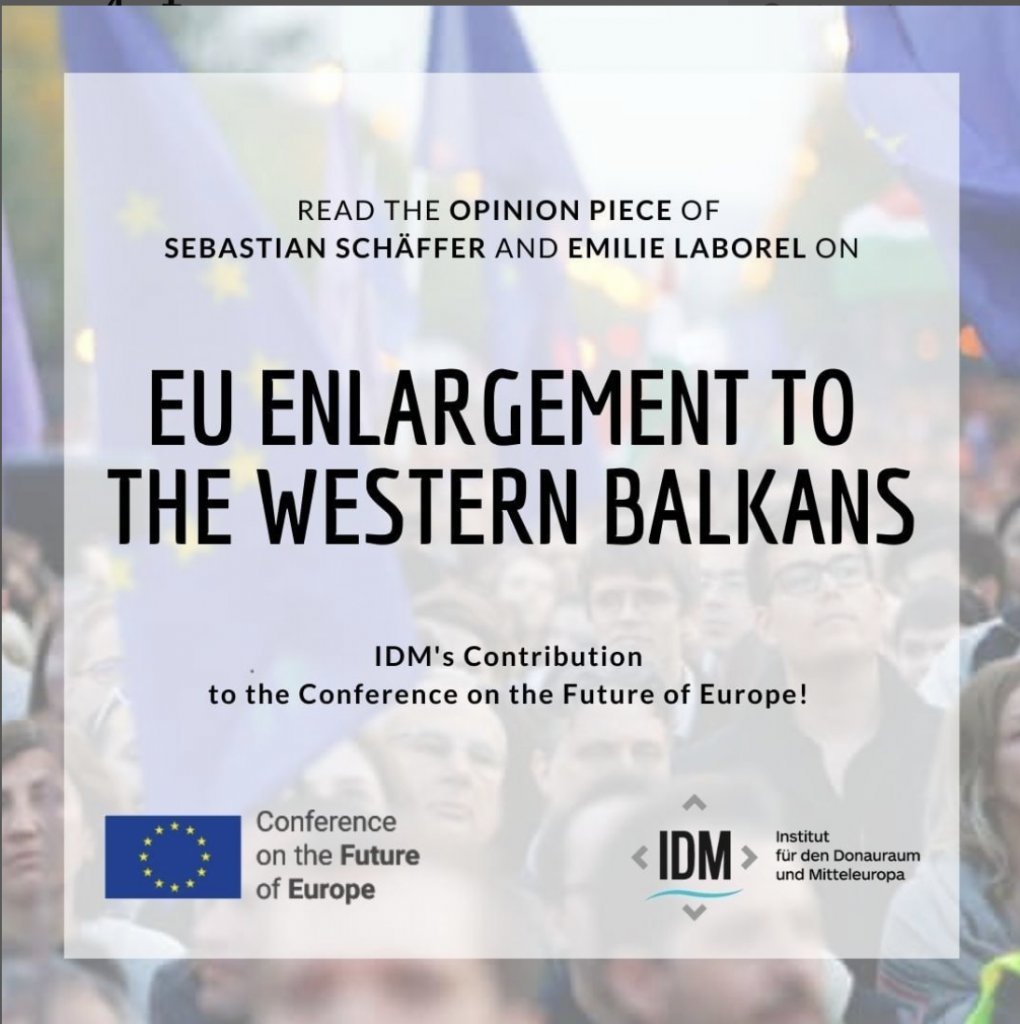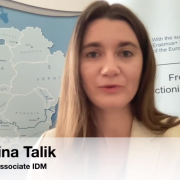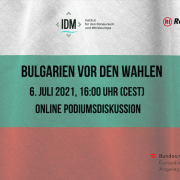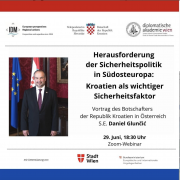
Der beste Moment für Reformen liegt bereits hinter uns, so Sebastian SCHÄFFER in seinem Gastkommentar. Der Politikwissenschaftler weiß um die Dringlichkeit einer »Wiederbelebung« der Europäischen Union. Die vorhandenen Rettungspläne müssten jedoch jetzt mutig und breit diskutiert werden.
Über Jahrzehnte wurde die Europäische Integration u.a. von dem Narrativ getragen, dass sie aus Krisen gestärkt hervorgeht. Die Politik des leeren Stuhls* in den 1960er Jahren führte zur Abschaffung des Einstimmigkeitsprinzips, die Zerfallskriege im ehemaligen Jugoslawien zu Beginn der 1990er Jahre zum Aufbau einer Gemeinsamen Außen- und Sicherheitspolitik. Mit dem Scheitern des Entwurfs über eine Verfassung für Europa an den negativen Referenden in Frankreich und den Niederlanden im Jahr 2005 kam es schließlich zum Vertrag von Lissabon. Ein großer Wurf war es wieder nicht geworden, aber mit einem Schritt zurück, zwei nach vorn, kommt man auch voran. Wenn auch langsam, dafür immerhin stetig. Dabei herrschte die Annahme vor, dass Erweiterung auch mit Vertiefung einhergeht. Mehr Mitgliedsstaaten hieße demnach auch mehr vergemeinschaftete Politikbereiche. Das eine folgt dem anderen.
So sollte irgendwann die Europäische Union (EU) mit Europa gleichbedeutend und fortan alle Entscheidungen gemeinschaftlich getroffen werden. Die sogenannte »Methode Monnet« wurde allerdings im Dezember 2009 de facto abgeschafft, ohne dass es eine breitere Diskussion darüber gegeben hätte. Dieses Ziel scheiterte aber auch daran, dass es ganz generell abseits der politischen Eliten und EU-Nerds an Debatten zur Ever Closer Union fehlte. Was 1952 durch die Vergemeinschaftung von Kohle und Stahl begann, basiert auf der Annahme, dass die erfolgreiche Kooperation in einem Politikbereich in weitere Bereiche übergeht bis die Zusammenarbeit irgendwann alle erfasst. Mit dem Vertrag von Lissabon wurde diese Idee begraben, denn mit der Möglichkeit für die Mitgliedstaaten sich Kompetenzen zurückzuholen, greift dieses Prinzip nicht mehr. Dabei war es keine böse Absicht. Mit der Hoffnung dadurch Integrationswillen zu schaffen, schlitterte die EU jedoch ungewollt in die nächste Krise. Erstmals war nämlich auch die Option vorgesehen, dass Mitgliedstaaten wieder austreten. Das Gegenteil von gut ist gut gemeint. Nach der Finanz- und Eurokrise 2007/2008, der sogenannten Migrationskrise 2015 kam 2016 auch noch der Brexit hinzu. Zusätzlich dominiert seit über einem Jahr eine Pandemie unser Leben. Was also, wenn die Krisen nie aufhören bzw. ineinander übergehen oder sogar parallel verlaufen? Kann man dann immer noch gestärkt daraus hervorgehen?
Regionale Ungleichzeitigkeit
Anfang der 1990er Jahre beschrieb der deutsche Soziologe und Politikwissenschaftler Claus Offe die Notwendigkeit, gleichzeitig politische und wirtschaftliche Transformationen – und in einigen Fällen auch Staatsbildungsprozesse – in Mittel- und Osteuropa durchführen zu müssen als »Dilemma der Gleichzeitigkeit«. Die Herausforderungen für einen sozialen und gesellschaftlichen Wandel sind darin noch gar nicht inkludiert. Der deutsche Philosoph Ernst Bloch hat bereits in den 1930er Jahren auf den Umstand hingewiesen, dass nicht alle Bereiche der Gesellschaft Fortschritte zur selben Zeit und gleich umfassend durchlaufen und nannte diesen Zustand Ungleichzeitigkeit. Im Hinblick auf die heutige EU können wir also durchaus von einem Dilemma der Ungleichzeitigkeit sprechen. Ein System, das nicht in der Lage ist, sich an neue Gegebenheiten anzupassen, droht zu scheitern. Vor allem wenn diese Notwendigkeit noch nicht von allen Teilen der Gesellschaft erkannt oder, heute sogar noch relevanter, nicht empfunden wird. Der beste Moment für eine breit angelegte Diskussion über eine Reform des institutionellen Aufbaus wäre unmittelbar nach Bekanntgabe des Abstimmungsergebnisses in London gewesen. Der zweitbeste Moment ist jetzt. Vorschläge zu diesem Wandel gibt es genug. Von einer Europäischen Republik bis zu einem Europa der Nationen. Es müssen aber nicht immer radikale Schritte sein. Wir müssen das gemeinsame Haus Europa nicht einreißen, um es neu bauen zu können. Eine Renovierung bestehender Strukturen mit einer zukunftsfähigen Sanierung, darunter etwa das ordentliche Gesetzgebungsverfahren, können die Grundlagen für die nächsten sieben Jahrzehnte Frieden und Wohlstand auf dem Kontinent schaffen – und diesmal wirklich für alle Staaten. Ein Ansatz dafür könnte im Regionalismus liegen. Um die Rechenschaftspflicht, die Effizienz und die demokratischen Strukturen zu verbessern, sollten die folgenden vier Empfehlungen umgesetzt werden: 1) Reduktion der Europäischen Kommission auf 15 Mitglieder 2) Pan-europäische Wahl des Europäischen Parlaments 3) Integration des Rates der Europäischen Union/Consilium in den Europäischen Rat sowie 4) Schaffung eines Rats der Europäischen Regionen.
Wie wir leben wollen
Aber nicht nur die Institutionen auf EU-Ebene haben dringenden Reformbedarf. Ganz grundsätzlich müssen wir uns überlegen, wie eine repräsentative Demokratie im 21. Jahrhundert funktionieren kann. Allein mit mehr Bürgerbeteiligung ist es nicht getan, denn auch diese lässt sich instrumentalisieren. Hybride Varianten wie Stabilokratien oder illiberale Demokratien mögen gerade en vogue sein, machen langfristig aber eine Repräsentation der gesamten Gesellschaft unmöglich. Am Ende läuft es schlichtweg auf die Frage hinaus, ob wir in einer Demokratie oder einem autoritären Staat leben wollen. Ist die europäische Demokratie also noch zu retten? Ja, allerdings befindet sie sich schon seit geraumer Zeit auf der Intensivstation. Bevor all die Orbáns, Salvinis, Le Pens und Weidels ihr endgültig den Stecker ziehen, sollten wir ihr wieder auf die Beine helfen. Reanimation ist nicht ausreichend. Nach einer Nahtoderfahrung kann man nicht einfach mit den alten Gewohnheiten fortfahren. Es gilt, den Lebenswandel grundlegend zu ändern. Vorschläge dazu gibt es genug, Hauptsache die Herausforderungen werden endlich angegangen und nicht nach der ersten Hürde wieder abgebrochen. Die Konferenz zur Zukunft Europas* kann dazu eine Möglichkeit sein. Schon jetzt ist für eine Vertragsrevision ein Konvent als Mechanismus* vorgesehen. Bisher hat sich nur niemand getraut, diesen einzuberufen. Was die EU gestärkt aus den Krisen hervorgehen ließ, war der Mut der EntscheidungsträgerInnen zur Veränderung. Wir müssen dieses Mal einen möglichst breiten Konsens schaffen, statt uns auf den kleinsten gemeinsamen Nenner zu einigen. Dazu gehört es auch, Argumente zu berücksichtigen, unabhängig davon, wer sie vorbringt. Denn das ist was Demokratie ausmacht: Streiten über Alternativen. Seien wir wieder gemeinsam mutig!
*Politik des leeren Stuhls
Damit ist das Fernbleiben Frankreichs vom Ministerrat (1965–1966) gemeint. Der französische Staatspräsident Charles de Gaulle blockierte so die Entscheidungen der Europäischen Gemeinschaft (u.a. zur Europäischen Integration), was zu einer Krise der Europapolitik führte. Aus Sorge, die nationalen Interessen künftig nicht mehr durchsetzen zu können, hatte sich Frankreich damals gegen die Einführung von Mehrheitsentscheidungen in der gemeinsamen Agrarpolitik ausgesprochen – mit Erfolg. Mit dem Luxemburger Kompromiss
kam die Gemeinschaft Frankreich schließlich
entgegen.
*Konferenz zur Zukunft Europas
Dabei handelt es sich um ein 2021 von der EUKommission geschaffenes europaweites Forum zum Austausch von Ideen zur Zukunft der EU. Innerhalb eines Jahres sind alle BürgerInnen eingeladen, in Form von Veranstaltungen und mehrsprachigen Online-Aktivitäten ihre Vorschläge einzubringen und darüber zu diskutieren.
*Konvent als Mechanismus
Darunter versteht man ein Gremium von VertreterInnen der nationalen Parlamente, der Staats- und Regierungschefs, des Europäischen Parlaments und der Kommission. Bei Bedarf wird auch die Europäische Zentralbank gehört. Der Konvent prüft die Änderungsentwürfe und richtet eine Empfehlung an eine Konferenz der RegierungsvertreterInnen. Seit dem Vertrag von Lissabon ist dies das ordentliche Verfahren zur Änderung der EU-Verträge. Bereits in den frühen 2000er Jahren wurde ein Verfassungskonvent einberufen. Der damalige Entwurf scheiterte aber an Referenden in Frankreich und den Niederlanden.
Sebastian Schäffer ist Geschäftsführer des Instituts für den Donauraum und Mitteleuropa (IDM) in Wien und Generalsekretär der Danube Rectors‘ Conference (DRC). Er ist Gründer und Inhaber von SeminarsSimulationsConsulting (SSC) Europe, einer Plattform zur Vermittlung von Lehr- und Lernmethoden sowie Politikberatung für europapolitische Themen. Schäffer ist zudem Associate Fellow am Centre for Global Europe des GLOBSEC Policy Institute, Bratislava.
